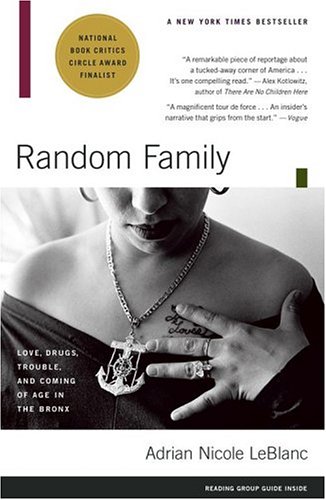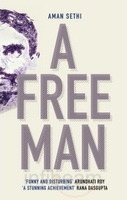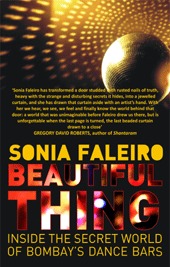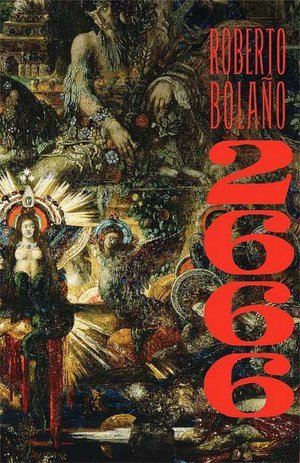Good Minds Suggest—Katherine Boo's Favorite Books About Inequality
Posted by Goodreads on February 1, 2012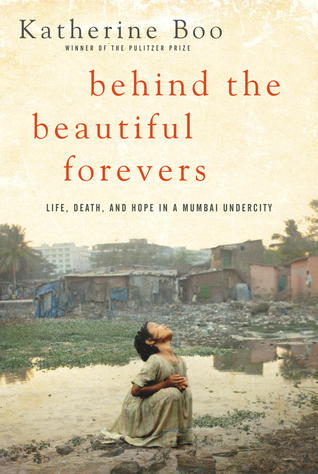 Katherine Boo, staff writer for The New Yorker and former editor for The Washington Post, is noted for her in-depth reporting on the lives of the poor. Her affinity for "immersion journalism," lingering with her subjects long enough to gain intimate access and understanding, has earned her both a Pulitzer Prize and a MacArthur "Genius" Grant. Over the past ten years she has written about domestic issues such as welfare, education reform, and the outsourcing of jobs, and split her time between the United States and India. Her debut work of narrative nonfiction, Behind the Beautiful Forevers, profiles families living in the slums near the Mumbai airport.
Boo shares with Goodreads five books about life on the wrong side of the inequality gap.
Katherine Boo, staff writer for The New Yorker and former editor for The Washington Post, is noted for her in-depth reporting on the lives of the poor. Her affinity for "immersion journalism," lingering with her subjects long enough to gain intimate access and understanding, has earned her both a Pulitzer Prize and a MacArthur "Genius" Grant. Over the past ten years she has written about domestic issues such as welfare, education reform, and the outsourcing of jobs, and split her time between the United States and India. Her debut work of narrative nonfiction, Behind the Beautiful Forevers, profiles families living in the slums near the Mumbai airport.
Boo shares with Goodreads five books about life on the wrong side of the inequality gap.
Random Family: Love, Drugs, Trouble, and Coming of Age in the Bronx by Adrian Nicole LeBlanc
 "I first read this book, which follows young low-income residents of the Bronx, as I was failing miserably to write my own book based on years that I'd spent with families in the largest housing project in Washington, D.C. When I came to the last page, I knew my own book didn't need to be written. Through painstaking research and observation, LeBlanc had written what is now rightly understood as a landmark work of narrative nonfiction, and a book that captures more accurately and intimately than any other—before or since—how difficult it is to get out of poverty in the American inner city."
"I first read this book, which follows young low-income residents of the Bronx, as I was failing miserably to write my own book based on years that I'd spent with families in the largest housing project in Washington, D.C. When I came to the last page, I knew my own book didn't need to be written. Through painstaking research and observation, LeBlanc had written what is now rightly understood as a landmark work of narrative nonfiction, and a book that captures more accurately and intimately than any other—before or since—how difficult it is to get out of poverty in the American inner city."
 "I first read this book, which follows young low-income residents of the Bronx, as I was failing miserably to write my own book based on years that I'd spent with families in the largest housing project in Washington, D.C. When I came to the last page, I knew my own book didn't need to be written. Through painstaking research and observation, LeBlanc had written what is now rightly understood as a landmark work of narrative nonfiction, and a book that captures more accurately and intimately than any other—before or since—how difficult it is to get out of poverty in the American inner city."
"I first read this book, which follows young low-income residents of the Bronx, as I was failing miserably to write my own book based on years that I'd spent with families in the largest housing project in Washington, D.C. When I came to the last page, I knew my own book didn't need to be written. Through painstaking research and observation, LeBlanc had written what is now rightly understood as a landmark work of narrative nonfiction, and a book that captures more accurately and intimately than any other—before or since—how difficult it is to get out of poverty in the American inner city."
A Free Man by Aman Sethi
 "This brilliant account of Mohammed Ashraf, an alcoholic day laborer in New Delhi, has already been published to acclaim in India, and a U.S. edition will be coming out this fall. Sethi is a master of understatement and captures Ashraf's daily improvisations with immense intelligence, humor, originality, and a compassion that never cloys. Sethi is also bracingly honest about the found comedy and tragedy of reporting on the lives of people without privilege. As I devoured Sethi's descriptions of hapless and uneasy reporting days, I sometimes felt as if I were reading my own diary."
"This brilliant account of Mohammed Ashraf, an alcoholic day laborer in New Delhi, has already been published to acclaim in India, and a U.S. edition will be coming out this fall. Sethi is a master of understatement and captures Ashraf's daily improvisations with immense intelligence, humor, originality, and a compassion that never cloys. Sethi is also bracingly honest about the found comedy and tragedy of reporting on the lives of people without privilege. As I devoured Sethi's descriptions of hapless and uneasy reporting days, I sometimes felt as if I were reading my own diary."
 "This brilliant account of Mohammed Ashraf, an alcoholic day laborer in New Delhi, has already been published to acclaim in India, and a U.S. edition will be coming out this fall. Sethi is a master of understatement and captures Ashraf's daily improvisations with immense intelligence, humor, originality, and a compassion that never cloys. Sethi is also bracingly honest about the found comedy and tragedy of reporting on the lives of people without privilege. As I devoured Sethi's descriptions of hapless and uneasy reporting days, I sometimes felt as if I were reading my own diary."
"This brilliant account of Mohammed Ashraf, an alcoholic day laborer in New Delhi, has already been published to acclaim in India, and a U.S. edition will be coming out this fall. Sethi is a master of understatement and captures Ashraf's daily improvisations with immense intelligence, humor, originality, and a compassion that never cloys. Sethi is also bracingly honest about the found comedy and tragedy of reporting on the lives of people without privilege. As I devoured Sethi's descriptions of hapless and uneasy reporting days, I sometimes felt as if I were reading my own diary."
Beautiful Thing: Inside the Secret World of Bombay's Dance Bars by Sonia Faleiro (Goodreads Author)
 "Faleiro is another first-rate Indian journalist (and novelist) whose nonfiction account of the life of a young bar dancer in Mumbai is pitch perfect. Faleiro slashes through stereotypes to provide a riveting portrait of Leela, an ambitious and imaginative young woman who is using her body to carve out a better life in a bluntly transactional world. I only wish that this book were a novel so that I didn't have to fear for Leela's future the way I do."
"Faleiro is another first-rate Indian journalist (and novelist) whose nonfiction account of the life of a young bar dancer in Mumbai is pitch perfect. Faleiro slashes through stereotypes to provide a riveting portrait of Leela, an ambitious and imaginative young woman who is using her body to carve out a better life in a bluntly transactional world. I only wish that this book were a novel so that I didn't have to fear for Leela's future the way I do."
 "Faleiro is another first-rate Indian journalist (and novelist) whose nonfiction account of the life of a young bar dancer in Mumbai is pitch perfect. Faleiro slashes through stereotypes to provide a riveting portrait of Leela, an ambitious and imaginative young woman who is using her body to carve out a better life in a bluntly transactional world. I only wish that this book were a novel so that I didn't have to fear for Leela's future the way I do."
"Faleiro is another first-rate Indian journalist (and novelist) whose nonfiction account of the life of a young bar dancer in Mumbai is pitch perfect. Faleiro slashes through stereotypes to provide a riveting portrait of Leela, an ambitious and imaginative young woman who is using her body to carve out a better life in a bluntly transactional world. I only wish that this book were a novel so that I didn't have to fear for Leela's future the way I do."
The Corner: A Year in the Life of an Inner-City Neighborhood by David Simon and Edward Burns
 "David Simon makes such powerful television series [The Wire, Homicide: Life on the Street] that his earlier career as a nonfiction writer is sometimes overlooked. This book shouldn't be. It's a fierce and uncompromising work of reportage about individuals in one low-income Baltimore neighborhood that evolves into an equally fierce indictment of the choices of people in other hidden corners of American life—people with economic and political power."
"David Simon makes such powerful television series [The Wire, Homicide: Life on the Street] that his earlier career as a nonfiction writer is sometimes overlooked. This book shouldn't be. It's a fierce and uncompromising work of reportage about individuals in one low-income Baltimore neighborhood that evolves into an equally fierce indictment of the choices of people in other hidden corners of American life—people with economic and political power."
 "David Simon makes such powerful television series [The Wire, Homicide: Life on the Street] that his earlier career as a nonfiction writer is sometimes overlooked. This book shouldn't be. It's a fierce and uncompromising work of reportage about individuals in one low-income Baltimore neighborhood that evolves into an equally fierce indictment of the choices of people in other hidden corners of American life—people with economic and political power."
"David Simon makes such powerful television series [The Wire, Homicide: Life on the Street] that his earlier career as a nonfiction writer is sometimes overlooked. This book shouldn't be. It's a fierce and uncompromising work of reportage about individuals in one low-income Baltimore neighborhood that evolves into an equally fierce indictment of the choices of people in other hidden corners of American life—people with economic and political power."
2666 by Roberto Bolaño
 "Bolaño's novels bring alive parts of my brain I would otherwise give up as lost, and I came to 2666 as I was investigating the deaths of poor children in Mumbai. I was pretty shattered by those deaths and further undone when I came to the section of the novel coolly titled "The Part About the Crimes." Writing about the serial murders of young women in a fictional Mexican district very much like Juarez, he moves between a near-forensic account of specific atrocities and a trance-state mediation on how much we can bear to know. In these uncanny and mesmeric passages he demonstrates a profound understanding of how and why we insulate ourselves from the injustice all around us, then manages to strip that insulation bare."
"Bolaño's novels bring alive parts of my brain I would otherwise give up as lost, and I came to 2666 as I was investigating the deaths of poor children in Mumbai. I was pretty shattered by those deaths and further undone when I came to the section of the novel coolly titled "The Part About the Crimes." Writing about the serial murders of young women in a fictional Mexican district very much like Juarez, he moves between a near-forensic account of specific atrocities and a trance-state mediation on how much we can bear to know. In these uncanny and mesmeric passages he demonstrates a profound understanding of how and why we insulate ourselves from the injustice all around us, then manages to strip that insulation bare."
 "Bolaño's novels bring alive parts of my brain I would otherwise give up as lost, and I came to 2666 as I was investigating the deaths of poor children in Mumbai. I was pretty shattered by those deaths and further undone when I came to the section of the novel coolly titled "The Part About the Crimes." Writing about the serial murders of young women in a fictional Mexican district very much like Juarez, he moves between a near-forensic account of specific atrocities and a trance-state mediation on how much we can bear to know. In these uncanny and mesmeric passages he demonstrates a profound understanding of how and why we insulate ourselves from the injustice all around us, then manages to strip that insulation bare."
"Bolaño's novels bring alive parts of my brain I would otherwise give up as lost, and I came to 2666 as I was investigating the deaths of poor children in Mumbai. I was pretty shattered by those deaths and further undone when I came to the section of the novel coolly titled "The Part About the Crimes." Writing about the serial murders of young women in a fictional Mexican district very much like Juarez, he moves between a near-forensic account of specific atrocities and a trance-state mediation on how much we can bear to know. In these uncanny and mesmeric passages he demonstrates a profound understanding of how and why we insulate ourselves from the injustice all around us, then manages to strip that insulation bare."
Vote for your own favorites on Listopia: Best Books on Poverty
Comments Showing 1-24 of 24 (24 new)
date newest »
newest »
 newest »
newest »
message 1:
by
Valerie
(new)
Feb 06, 2012 02:22PM
 I would tend to include non-fiction books as well, starting with Stephen Jay Gould's The Mismeasure of Man.
I would tend to include non-fiction books as well, starting with Stephen Jay Gould's The Mismeasure of Man.
flag
 I teach at an alternative school with students who have been in trouble at school, at home, with the law, etc. Most come from a background of poverty and a culture of crime, drugs, and near hopelessness. What would you recommend for classroom reading? These are high schoolers who may be behind a grade or two and most are reluctant readers.
I teach at an alternative school with students who have been in trouble at school, at home, with the law, etc. Most come from a background of poverty and a culture of crime, drugs, and near hopelessness. What would you recommend for classroom reading? These are high schoolers who may be behind a grade or two and most are reluctant readers.
 'Reluctant', or disabled in some way? It's not hard to interest people in reading if they don't have some problem with it. Take the Zenna Henderson story "The Inedlible Kind" (which is either in Holding Wonder or The Anything Box, I forget which. Both are worth reading, whichever). The character Vincent Krogginold is unable to read children's stories because they contain instances of coercion and confinement. But how does he know they do? Because he has ALREADY read them.
'Reluctant', or disabled in some way? It's not hard to interest people in reading if they don't have some problem with it. Take the Zenna Henderson story "The Inedlible Kind" (which is either in Holding Wonder or The Anything Box, I forget which. Both are worth reading, whichever). The character Vincent Krogginold is unable to read children's stories because they contain instances of coercion and confinement. But how does he know they do? Because he has ALREADY read them.My mother taught us to read by reading us interesting books aloud. Then she'd stop at the most exciting part, and leave the book lying around...so if you wanted to know how they ended, you'd have to read it yourself.
As for what to read, I'd suggest stories that involve interesting mental challenges, myself. As I child, I almost never read children's books, because I couldn't stand their patronizing tones. As an adult, I learned that not all children's books were patronizing. But until then, I tended to focus on mythology and suchlike.
So, for example, I always liked the stories from the Brown Fairy Book, which is folklore from many parts of the world. One story tells of how a group of aboriginal hunters kidnap a baby bunyip, so its mother floods the land to try to save it.
Ursula K LeGuin once pointed out that it's not a criticism to say of science fiction that it's 'escapist'; for is it not the prisoner's primary duty to try to escape? What matters is what one is escaping TO.
So, for example, many people recommend James White's books. If you're trying to escape a situation like Northern Ireland during the Troubles, what better place to go than a multispecies hospital, where the medical students have to deal with crablike Melfan colleagues who snore in a particularly obnoxious ways (by clicking their claws all night long)?
I would also recommend keeping a copy of a good etymological dictionary onsite (My personal preference is The Dictionary of Word Roots and Combining Forms), and teaching people how to use the dictionaries to deal with words they don't know. By breaking the words down into parts, and figuring out what they should mean by what the parts mean, people can increase their vocabularies through fun puzzles, rather than plugging away at drudgery.
One thing I've always reminded myself: the word 'student' comes from a word meaning 'eager', and the word 'school' from a word meaning 'free time'. If you're not having fun, you're not a student: and in all probability, whatever one 'learns' without joy will not be retained.
 The Spirit Level: Why More Equal Societies Almost Always Do Better by Richard Wilkinson and Kate Pickett, reviewed in The Guardian here: http://www.guardian.co.uk/books/2009/...
The Spirit Level: Why More Equal Societies Almost Always Do Better by Richard Wilkinson and Kate Pickett, reviewed in The Guardian here: http://www.guardian.co.uk/books/2009/...
Aravind Adiga's The White Tiger has unforgettable descriptions contrasting poverty & wealth in contemporary India.
 I would hope she has already read The Grapes of Wrath, and Tortilla Flats by John Steinbeck, but if not both are good.
I would hope she has already read The Grapes of Wrath, and Tortilla Flats by John Steinbeck, but if not both are good.
 Nathan wrote: "Nickle and Dimed
Nathan wrote: "Nickle and Dimedhttp://www.goodreads.com/book/show/18..."
This book was really worth the time to read.
 My Name Is Child of God...Not "Those People": A First Person Look at Poverty, by Julia Dinsmore
My Name Is Child of God...Not "Those People": A First Person Look at Poverty, by Julia Dinsmorehttp://www.amazon.com/Name-Child-God-...
 These are all good ideas. I am familiar with most of them and could add some to the list such as Rick Bragg's "All Over But the Shoutin'". However you overestimate the reading ability and analytical ability of my students. I would like something short, fairly easy, and not intimidating to a student in the 9th grade for the second year. Only 3 out of 9 read The Hunger Games. I read a lot of "Shoutin" to them with the same 3 reading on their own. I have read aloud quite a lot. Raold Dahl's weird fairytales, The Outsiders, To Kill a Mockingbird. But I want them to read. Short stories may be the best thing.
These are all good ideas. I am familiar with most of them and could add some to the list such as Rick Bragg's "All Over But the Shoutin'". However you overestimate the reading ability and analytical ability of my students. I would like something short, fairly easy, and not intimidating to a student in the 9th grade for the second year. Only 3 out of 9 read The Hunger Games. I read a lot of "Shoutin" to them with the same 3 reading on their own. I have read aloud quite a lot. Raold Dahl's weird fairytales, The Outsiders, To Kill a Mockingbird. But I want them to read. Short stories may be the best thing.
 The very first book I can remembering reading about inequality , as an adult , was The Ragged Trousered Philanthropists by Robert Tressell, which was first published in 1965 but is set in the early part of the century - most likely would be heavy going compared to modern stories, but it has always stuck in my mind, and been a great influence in my life
The very first book I can remembering reading about inequality , as an adult , was The Ragged Trousered Philanthropists by Robert Tressell, which was first published in 1965 but is set in the early part of the century - most likely would be heavy going compared to modern stories, but it has always stuck in my mind, and been a great influence in my life
 Valerie wrote: "I would tend to include non-fiction books as well, starting with Stephen Jay Gould's The Mismeasure of Man."
Valerie wrote: "I would tend to include non-fiction books as well, starting with Stephen Jay Gould's The Mismeasure of Man."How does this one link up with poverty?
 The Tortilla Curtain, by T.C. Boyle. The story of lives colliding all over the United States, today-yesterday-tomorrow.
The Tortilla Curtain, by T.C. Boyle. The story of lives colliding all over the United States, today-yesterday-tomorrow.
 Thank you Katharine Boo for this very interesting and personal list. I plan to read these.
Thank you Katharine Boo for this very interesting and personal list. I plan to read these.A fictional recommendation that you may have read and that impressed and saddened me so much is Rohinton Mistry's 'A Fine Balance.'
 Well-thought out list. I run to fiction, and I'm glad to know "2666", which I would have read anyway, deals philosophically with the question of how anyone in comforts looks on the lives of the poor and the downtrodden.
Well-thought out list. I run to fiction, and I'm glad to know "2666", which I would have read anyway, deals philosophically with the question of how anyone in comforts looks on the lives of the poor and the downtrodden.
 The first two authors that came to my mind were:
The first two authors that came to my mind were:- Rohinton Mistry (A fine balance, Family matters)
- Frank McCourt (Angela's ashes and 'Tis)
but maybe most people have already read those. So thanks for all the suggestions!
 I totally second the vote for Ehrenreich's Nickled and Dimed.
I totally second the vote for Ehrenreich's Nickled and Dimed. But no list on inequality would make sense without Jonathan Kozol.
I would also be greatly amiss if I did not bring Frances Fox Piven to this discussion and her masterful Regulating the Poor: The Functions of Public Welfare.
I would add your own investigative report into the appalling disparities in mental health services across state lines in the Washington DC metropolitan area - late 1999, I think - the faces from which I can still see to this day.
 Dale wrote: "Valerie wrote: "I would tend to include non-fiction books as well, starting with Stephen Jay Gould's The Mismeasure of Man."
Dale wrote: "Valerie wrote: "I would tend to include non-fiction books as well, starting with Stephen Jay Gould's The Mismeasure of Man."How does this one link up with poverty?"
Gould explicitly wrote the first version to argue against 'biological' justifications for poverty. He began and ended both editions with Darwin's comment from The Voyage of The Beagle: "If the misery of the poor be caused, not by the laws of Nature, but by our institutions, great is our sin."
Gould originally considered using the line "Great is our sin" as the title for the book, but decided against it, in fear that the book would be categorized as a religious text. It's not, of course. It's a careful analysis of the scientific studies that purported to demonstrate that our society is fairly established. In other words, the studies, which masqueraded as objective science, were justifications for societal stratification and unequal distribution of resources.
Because these justifications are often accepted at face value, Gould felt it necessary to go back and critique them: refigure their sums, examine (often unconscious) assumptions, question why people chose one of several mathematically equivalent statistical methods, etc.
These critiques are necessary because too many people assume that 'science' is a value-free system, and that the conclusions scientists come to are the same that anybody would come to, if they did the work themselves.
If once one accepts such a presumption one is left with only moral arguments. Not that moral arguments aren't important. But if one abandons the field of science to people with a strong bias against poor people and in favor of current systems, they can always just argue that they're NOT bigots, but humble reporters of unpleasant facts.
So it's necessary to question the assumptions and studies behind those 'facts': which Gould does in a very readable and understandable way.
 And, of course, the classic How The Other Half Lives. Although it's more than a little patronizing, and many things have changed, there are few other detailed essays (especially photoessays)of tenement dwellers at the time.
And, of course, the classic How The Other Half Lives. Although it's more than a little patronizing, and many things have changed, there are few other detailed essays (especially photoessays)of tenement dwellers at the time.And Dickens, of course. And the excellent book The Good Old Days--They Were Terrible, which is a useful counteraction of the oft-repeated claims that things are steadily getting worse. And also Myths that Cause Crime, which deals with the too-current fact that 'white-collar' crime is a LOT more destructive than what might be called 'blue-collar' crime (interpersonal violence, overt drug use, homelessness (which is a 'crime' if it's designated as one, too often), etc etc ad nauseum); but that when people DISCUSS 'crime', they too often focus on the petty stuff, and don't deal with the millionaire crimes--too many of which have been legislated to become 'perfectly legal'.
As Ashleigh Brilliant pointed out, "Things can only get better, or worse, or stay the same, or not be what we supposed". To which I would add: 'or change, without getting better or worse: and everything will inevitably do all these things.'

